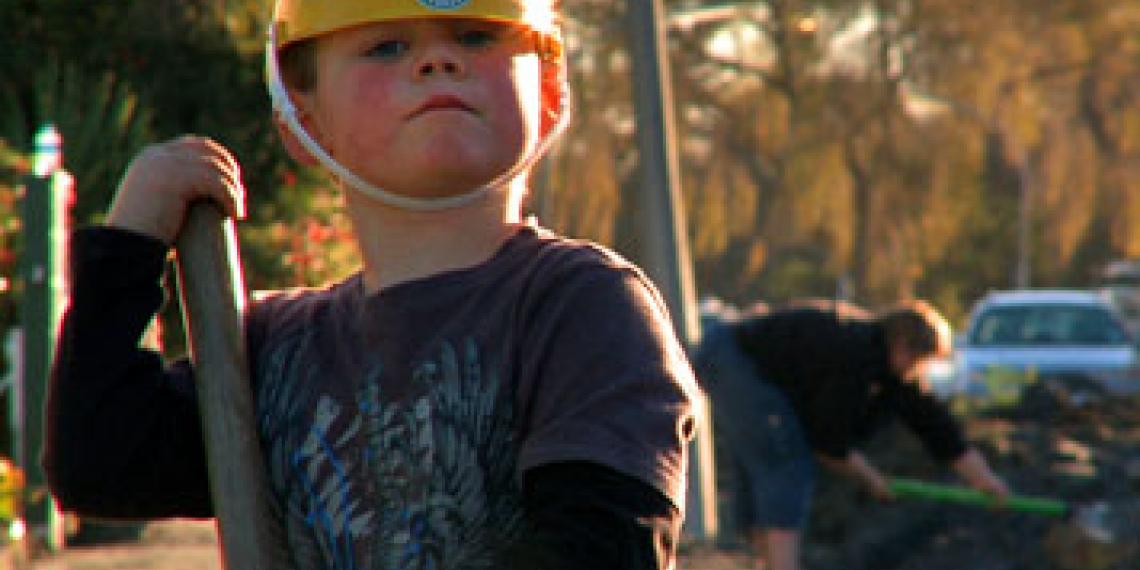You are here
When a City Falls

Directed by Gerard Symth
I wasn’t keen to see When A City Falls, about the Christchurch earthquakes. I was expecting to be confronted with heart-wrenching devastation. What I wasn’t expecting was a beautiful cinematic experience, and one of the finest recent examples of documentary storytelling.
The film opens with the strains of waiata—a sensitive soundtrack from Tiki Taane—and stunning images of the garden city as it once was. It opens simply with the words from filmmaker Gerard Smyth, ‘This is a personal account … a film I could never have planned to make’. And then, he lets the story unfold with simplicity, gentleness and restraint.
The first earthquake, on 4 September 2010, is told with a blacked-out screen and voices from a St John’s ambulance callout. In cinematic surround sound, the roar and violence of the earthquake is terrifying, providing just a glimpse of how it must have felt to be there on that night. ‘Somebody is looking after us,’ says a St John’s ambulance worker, relieved by the ‘miracle’ that no one has been killed. The bishop of Christchurch thanks God that the cathedral was strengthened. It is strikingly poignant.
The pinnacle of the film’s story is, of course, the devastating earthquake that struck on 22 February this year. The events are told through people’s personal stories. In one moving account, a women working in an aged-care home tells of 36 elderly people sleeping on mattresses, with workers in between them. The elderly comforted the frightened workers throughout the night, rubbing their backs. ‘It was the most wonderful lesson I’ve ever had about the elderly,’ said the woman.
Smyth doesn’t try too hard to find meaning or cultivate heroic themes. Without heavy-handed emotion, he allows people to speak and this gives the film its heart. The result was a profoundly moving experience. As the end credits rolled, no one in the cinema moved from their seats, and we continued to sit quietly once the screen had gone blank.
Go and see this film, not because it is important—although it is—but because it is a graceful, beautifully-told New Zealand story.
By Ingrid Barratt